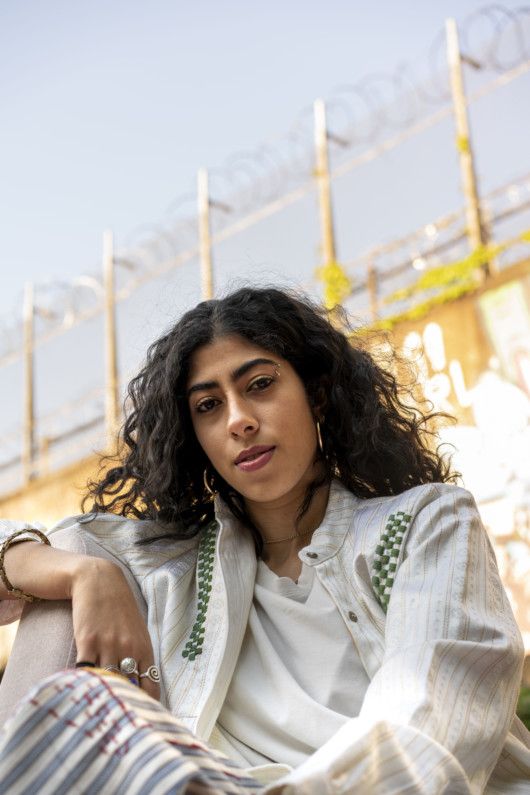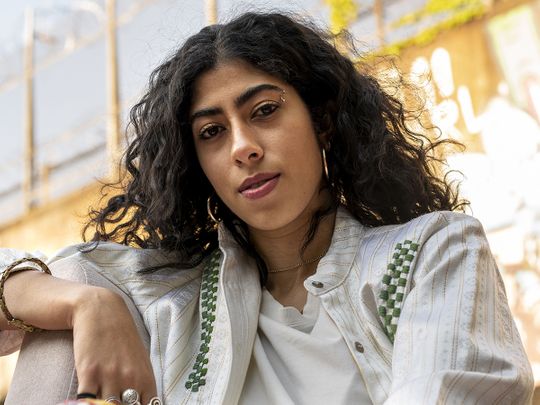
Based in New York, Egyptian hip hop artist Felukah — whose stage name draws inspiration from a sailboat that runs along the Nile River — is back with ‘Apocalypse’, a lofi reflection on the end-of-the-world (as we know it) dread that many of us have experienced in recent times.
Introduced to poetry by an English teacher and writing consistently since ninth grade, it was only after Felukah moved to New York City that she discovered rap and changed her trajectory.
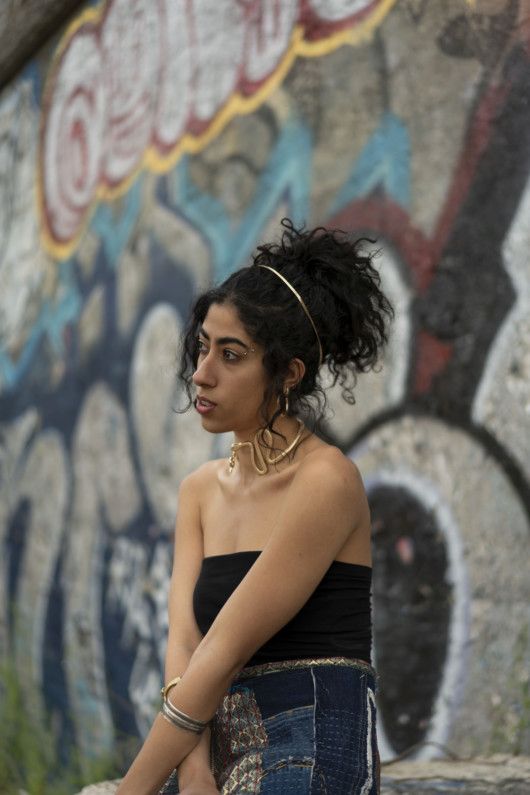
‘Apocalypse’ marks the second single off of her upcoming sophomore album, set to drop in August.
Speaking to Gulf News, she discusses the track, her place in the world and what comes next.
You take on a more lofi, alt-R‘n’B sound on ‘Apocalypse’. What was the inspiration, melodically, lyrically?
‘Apocalypse’ was written during peak pandemic, while I was quarantining in Harlem and cautiously recording in Brooklyn. A producer friend of mine hit me with this lofi-meets-old-school beat and I started writing for it immediately. The hook asks the other, the last ones standing to ‘come find me, we’ll keep riding’. We’re navigating a very globally sensitive time right now, with multiple social justice movements peaking and everyone in their feels. I wanted to capture that essence of an ending to all things in a romantic boom-bap vignette. That’s what ‘Apocalypse’ is to me.
You’ve dropped a few singles this year, since your debut album ‘Citadel’ came out last year… Is a second album on the way?
A second album is indeed on the way. ‘22+1’ and ‘Apocalypse’ are the two first singles we’ve dropped off the record. A culmination of my manifestations and visions, ‘Dream 23’ is set to be released in August. ‘Dream 23’ differs both musically and lyrically from anything I’ve put out before. The music is vibrational, energetic and calm at the same time — a quality I’ve always admired about timeless hip hop/R‘n’B records. We’re serving old school flows on new school beats, lofi energy on heated topics like women’s empowerment, self-discovery and cultural pride. The album lyrically and sonically explores space in the first half and earth in the other, validating the dream world and the real world equally.
Tell us about the title, ‘Dream 23’…
I’m really trying to pay homage to both Egyptian roots and New York culture with each turn around the sun. Since I’ve spun 22 times already, this album encompasses my own ‘Dream 23’. In another sense, the title can symbolise the sheer multiplicity of being; I could’ve chosen to chase one dream like rap, but instead it’s something more like 23 dreams — my interests multiply and deepen over time.
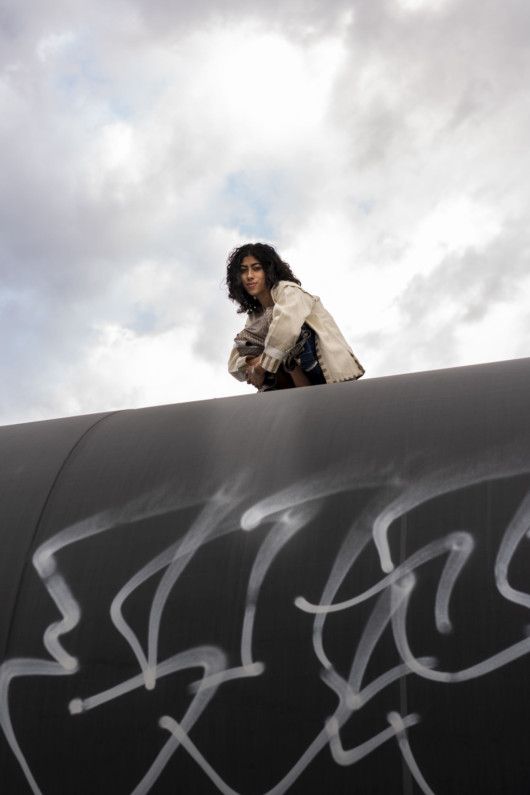
Living between Cairo and New York City, is there a place you call home? Where you feel you truly belong?
Cairo is homebase and that goes without saying. I was born and raised there — I only moved out to New York in 2017. Nonetheless, it’s crazy how the city took me in and lifted me up almost overnight. As time progressed, I came to learn myself as an Arab woman in a new context, and it’s been very refreshing for my psyche. It has also burdened my psyche, because I naturally grew less attached to my Egyptian roots. That’s why I choose to claim the space in between as where I truly belong. I am this, that, and neither at the same time. A true daughter of the universe.
Tell us what you were like growing up… what was Felukah the child like, or Felukah the teenager like?
I think as a middle child my parents were used to dealing with a lot of resistance and strong vision on my part. I was always set on my goals and had a rough idea of what I wanted to do; how I wanted to carry myself. I was always really interested in reading and writing, took interest in a variety of activities at school and tried to keep my circle expansive. Apparently I was a diva child, though; I used to wear this plastic crown around town and to school and didn’t let go of it until the second grade or so.
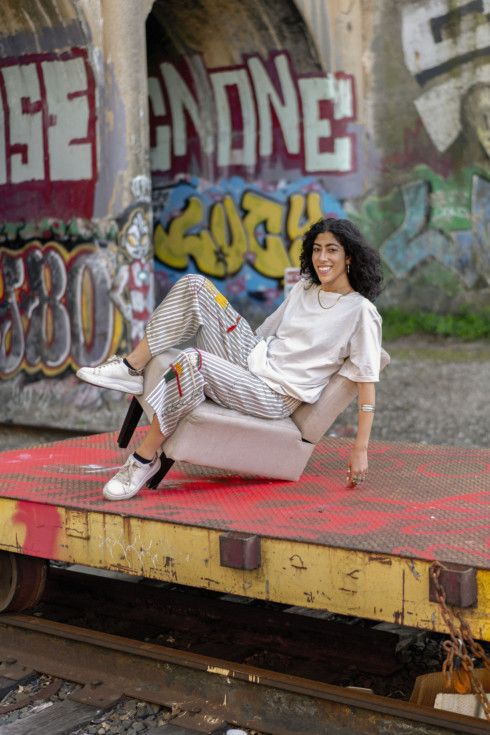
You’ve spoken about the name Felukah, but how and why did you choose it?
The name Felukah embodies my journey navigating my experiences as an Arab woman in America, and as a westernised woman in the Arab world. My mom helped me choose the name, it reflects a lot of what I believe in in terms of art and Egyptian culture as well this concept of fluidity and the idea of flowing with the motions and waves; it reflects this eternal ever-changing journey of life.
How has studying creative writing changed you as a writer? (Felukah is in her final semester.)
Exploring the underpinnings of writing has really shaped my view of the artistic process. Writers like Radwa Ashour, Haruki Murakami and poets like Nayyirah Waheed and Ocean Vuong inspire me deeply. The prose/poetry speaks volumes to me, so much so that it pushed me into the studio. Long before I found music, I was pushing my own poetry and attending my favourite authors’ readings around Cairo, New York and London. I like the idea of staying connected to print as I explore sound.
Who would you consider your biggest music influences?
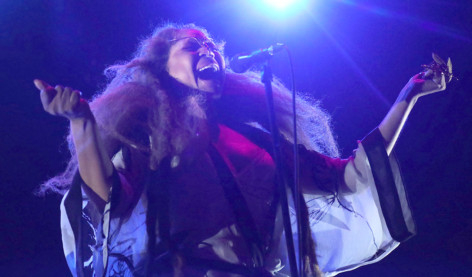
I gravitate towards old school flows and bar spitters like Nas and Andre 3000. I also like to employ honey melodies like Erykah Badu and Fairuz — moving forward from this album I want to explore more soul. Jazz also calls. At the root of anything I’ve ever created is a freestyle; I can only define my sound in the moment. I also admire artists like Solange, Noname, and Tyler, the Creator who toy with genre just enough to keep their sounds fresh while maintaining the same essence.
In terms of your writing, what are the experiences you tend to draw on?
Strong emotions like love, pain and injustice will force me to express myself first in dance (either in my room with my headphones blaring or on the roof maybe), before later transcribing the dance/emotion into lyrics and melodies.
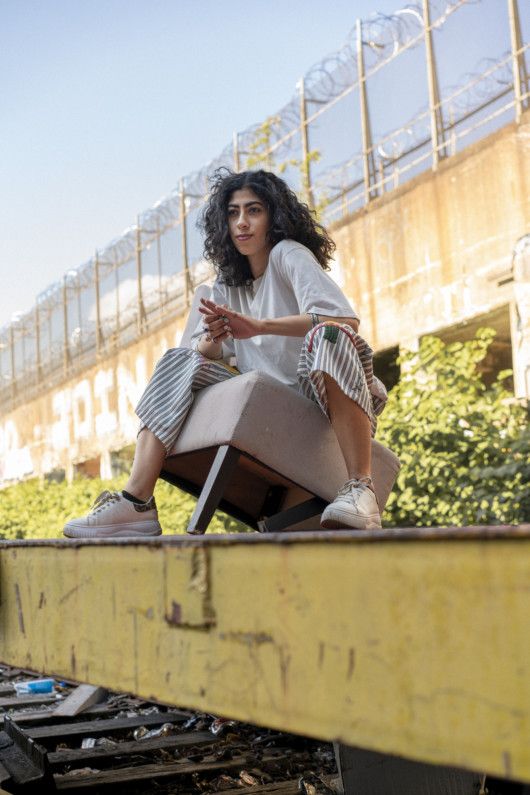
What’s your biggest frustration as an artist?
Generally, the topics I gravitate to in my music are taboo or were at some point, and still make some members of the older Arab generation uncomfortable. As I continued to sharpen my vision and entire approach to the Felukah philosophy, my parents came to realise the gravity of the work I wanted to create and have truly supported my every move since. But I’ve still had to deal with my own limitations and insecurities as a majorly underrepresented Arab woman in America, and as a Westernised Egyptian in Cairo. Creating my own blueprint for this music flex has been and continues to be difficult, but it is incredibly rewarding and motivating at the same time. I rise to the occasion of setting my own scene for this in between.
What’s something people might be surprised to know about you?
One of my favourite pets with whom I shared the closest bond was a goldfish named Cigarette who was expected to live for 2-3 weeks and ended up staying with me for 6 months. I recorded my first EP ‘Yansoon’ during the time I had him and would often perform verse for him, watching him swim to the beat made the music feel so real. And oddly aquatic.



